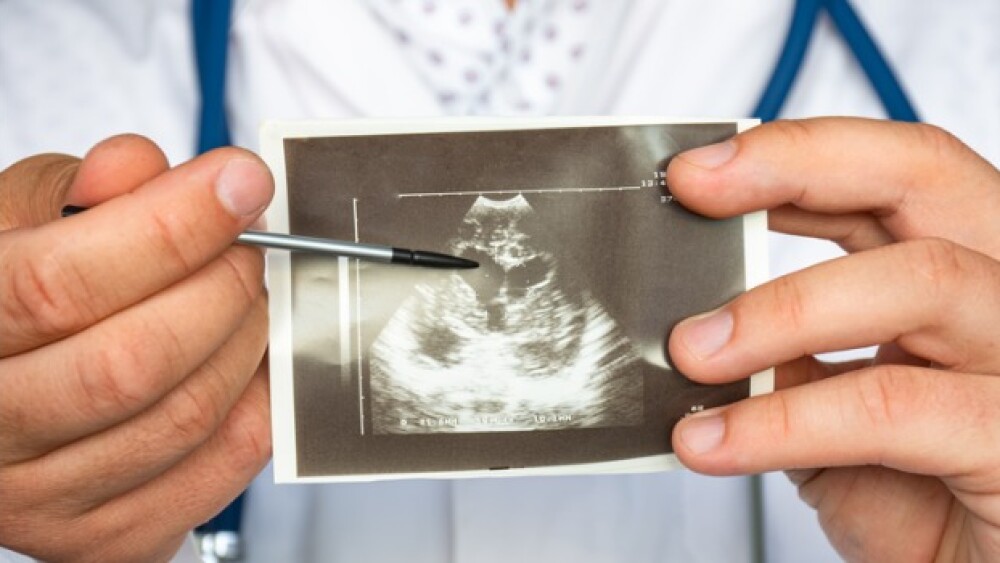Following disappointing topline data, BridgeBio’s acoramidis has scored a late-stage win in transthyretin amyloid cardiomyopathy, leading to significant survival and quality of life benefits.
Pictured: Doctor pointing to a heart ultrasound/iStock, Shidlovski
In the Phase III ATTRibute-CM study, BridgeBio Pharma’s investigational oral drug acoramidis demonstrated significant improvements in survival, morbidity, function and quality of life in patients suffering from transthyretin amyloid cardiomyopathy, the company announced Monday.
At the 30-month follow-up, 81% of patients treated with acoramidis were still alive, as compared with only 74% of placebo participants, which translates to a 25% relative risk reduction. The on-treatment survival rate also “begins to approach actuarial models of life expectancy absent ATTR-CM,” in which case an 85% survival rate has been documented, according to BridgeBio’s news release.
Acoramidis also cut the relative risk of cardiovascular-related hospitalizations in half, an effect that was highly statistically significant.
Monday’s data will allow the California biotech to stage a comeback in the transthyretin amyloid cardiomyopathy (ATTR-CM) space after topline, 12-month data released in December 2021 indicated that acoramidis even worsened walk distance in patients. At the time, CEO Neil Kumar called these findings “disappointing and baffling” which resulted in the company reducing its headcount.
BridgeBio is also gearing up to file a New Drug Application for acoramidis in this indication before the year ends. The company will also make regulatory submissions in other markets next year.
Designed to be administered orally, acoramidis is an investigational small molecule drug that works by stabilizing the TTR protein. In patients with ATTR-CM, mutations in this protein cause them to clump together and form amyloid fibrils, which then accumulate in and damage various organs throughout the body including the heart.
Acoramidis mimics a naturally occurring TTR variant that is often considered as a “rescue variant” because it helps minimize the hallmark ATTR-CM buildup in patients otherwise carrying pathogenic mutations.
“Today, excitingly, we connect molecular theory and early results to clinically meaningful outcomes,” Kumar said during an investor call Monday morning. “We find patients surviving more and going to the hospital less on therapy than we have previously ever observed.”
Acoramidis’ strong benefit on survival and hospitalization, as well as on other ATTR-CM disease parameters, offer “clinical support for our molecular hypothesis,” Kumar added.
ATTRibute-CM, a randomized, double-blinded and placebo-controlled trial with more than 630 participants, proved that acoramidis’ mechanism of action worked. Aside from better survival and lower hospitalization rates, patients treated with BridgeBio’s candidate also saw significant improvements in a six-minute walk distance—a key measure of functional health—and in their scores in the Kansas City Cardiomyopathy Questionnaire, a tool to assess quality of life and self-perception of health.
Acoramidis also led to better levels of NT-proBNP, a biomarker for heart health. The ATTRibute-CM study detected no safety signals of potential clinical concern.
Tristan Manalac is an independent science writer based in metro Manila, Philippines. He can be reached at tristan@tristanmanalac.com or tristan.manalac@biospace.com.






